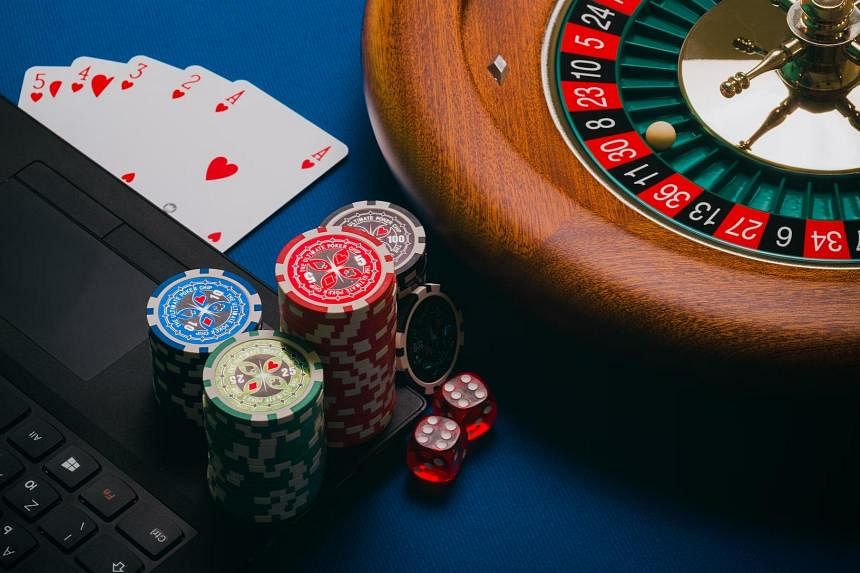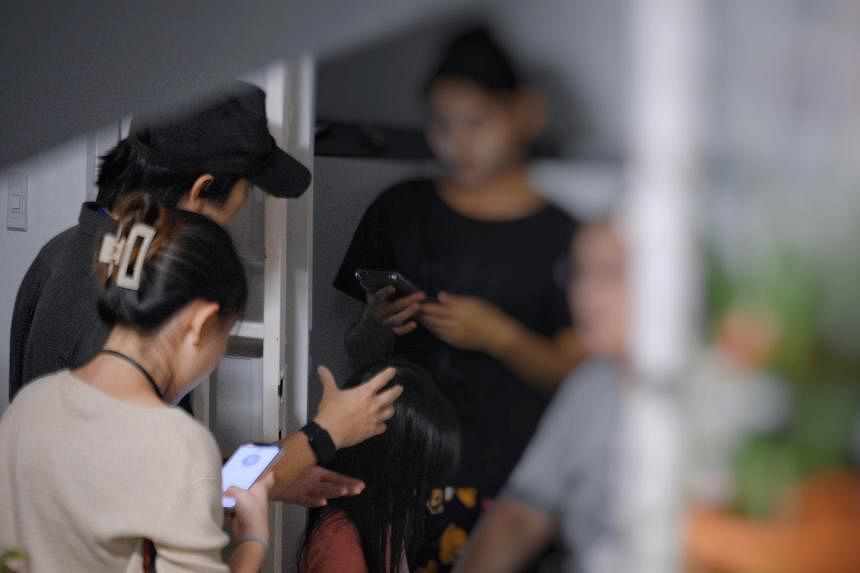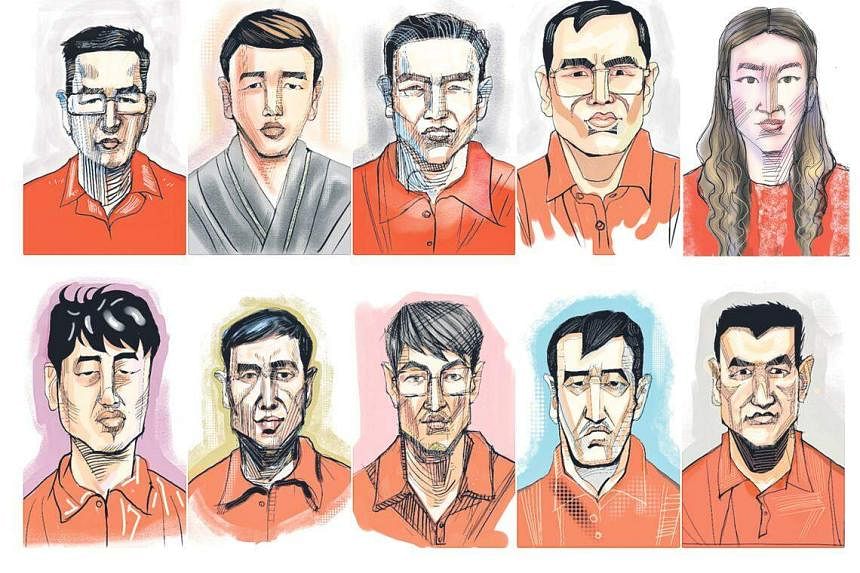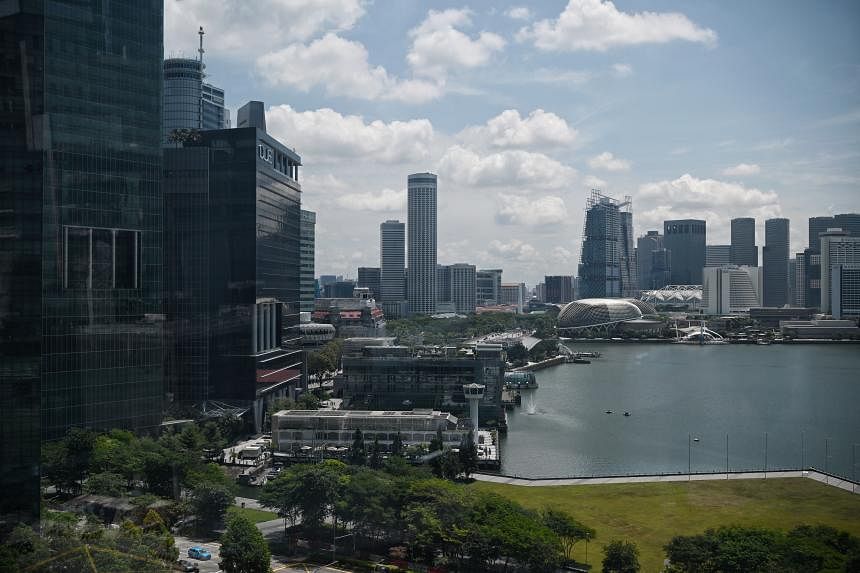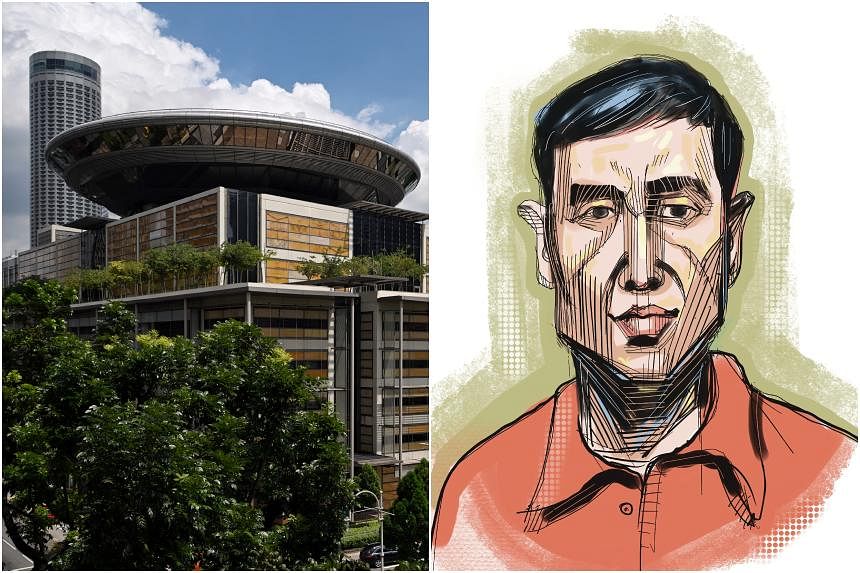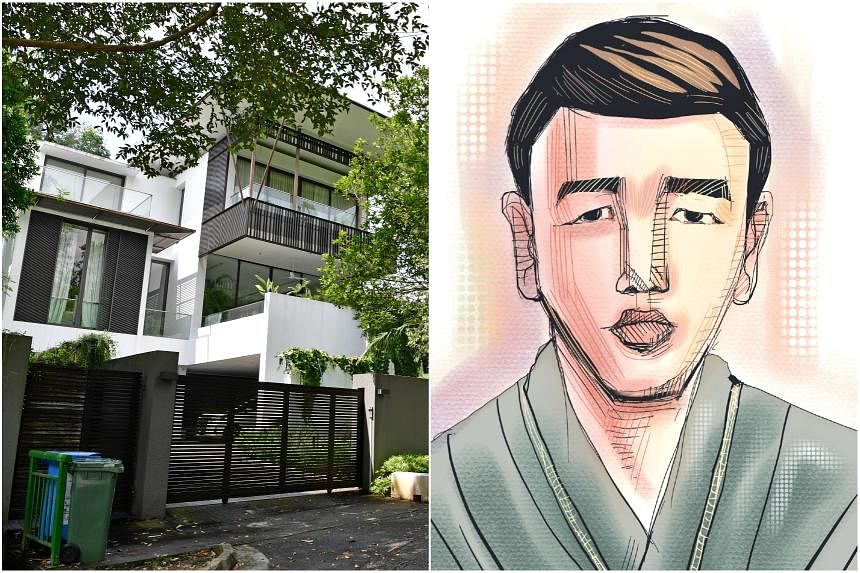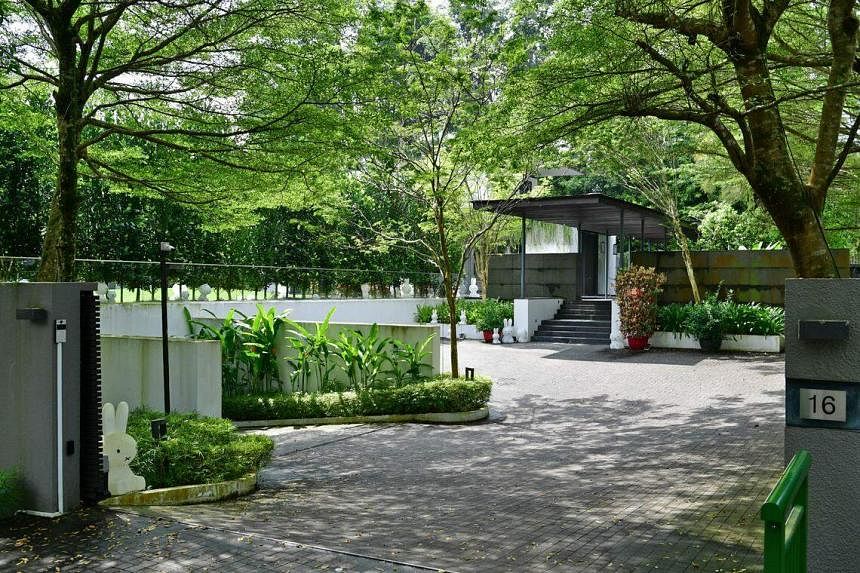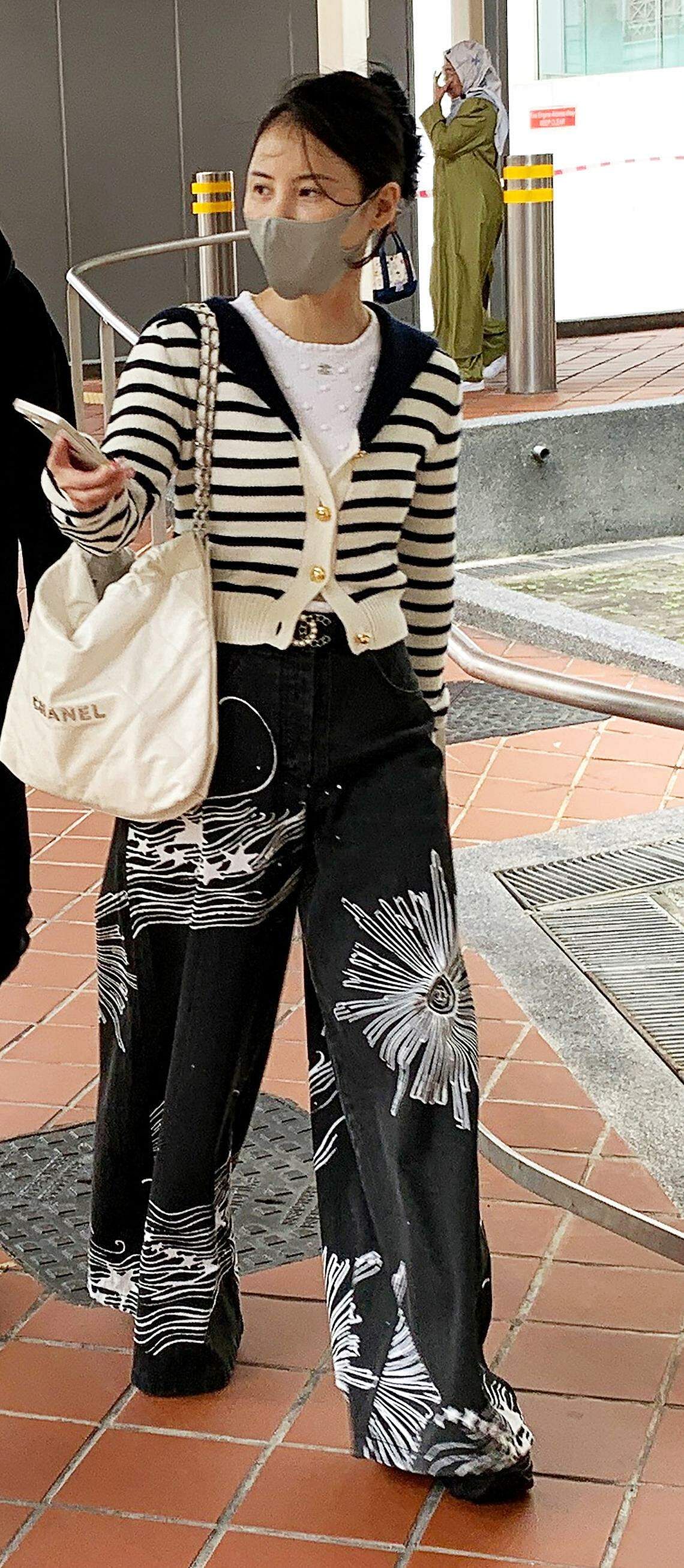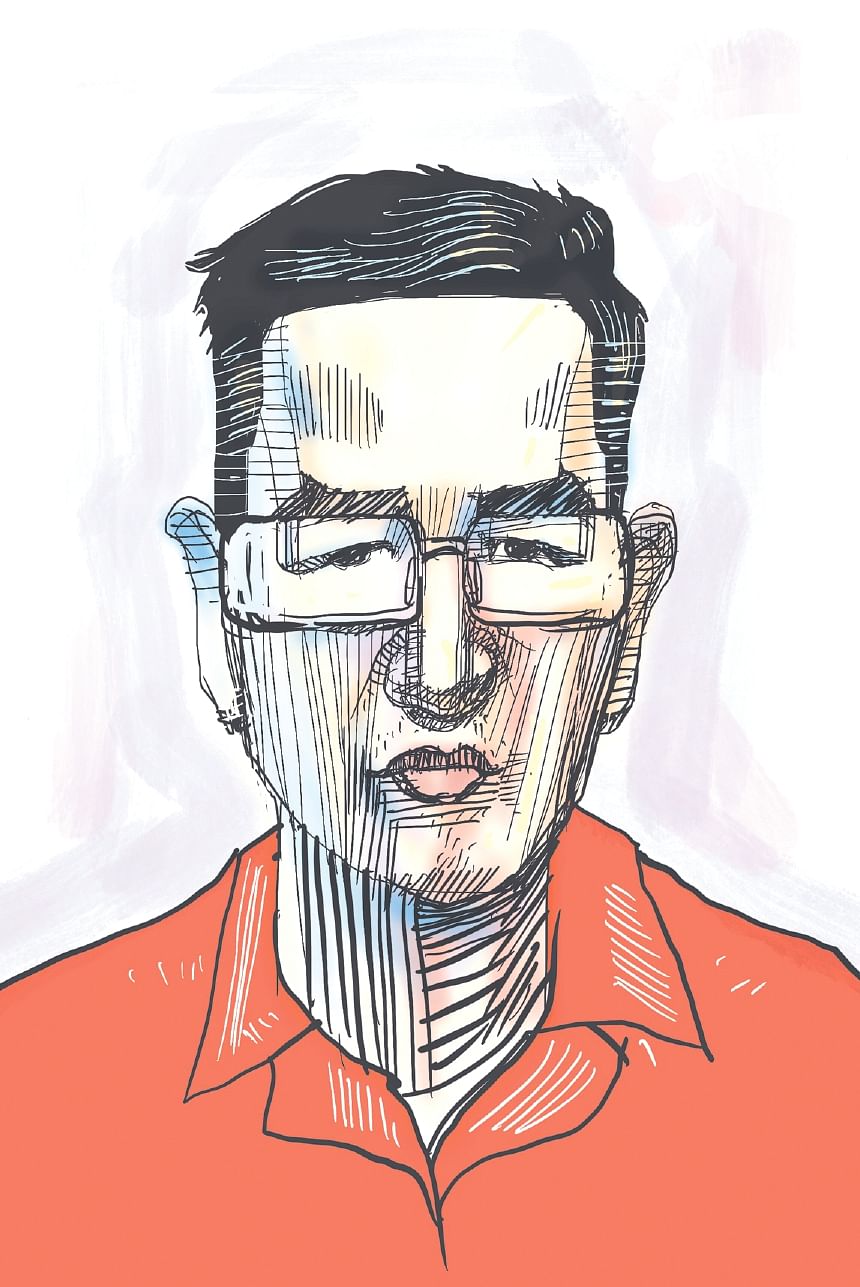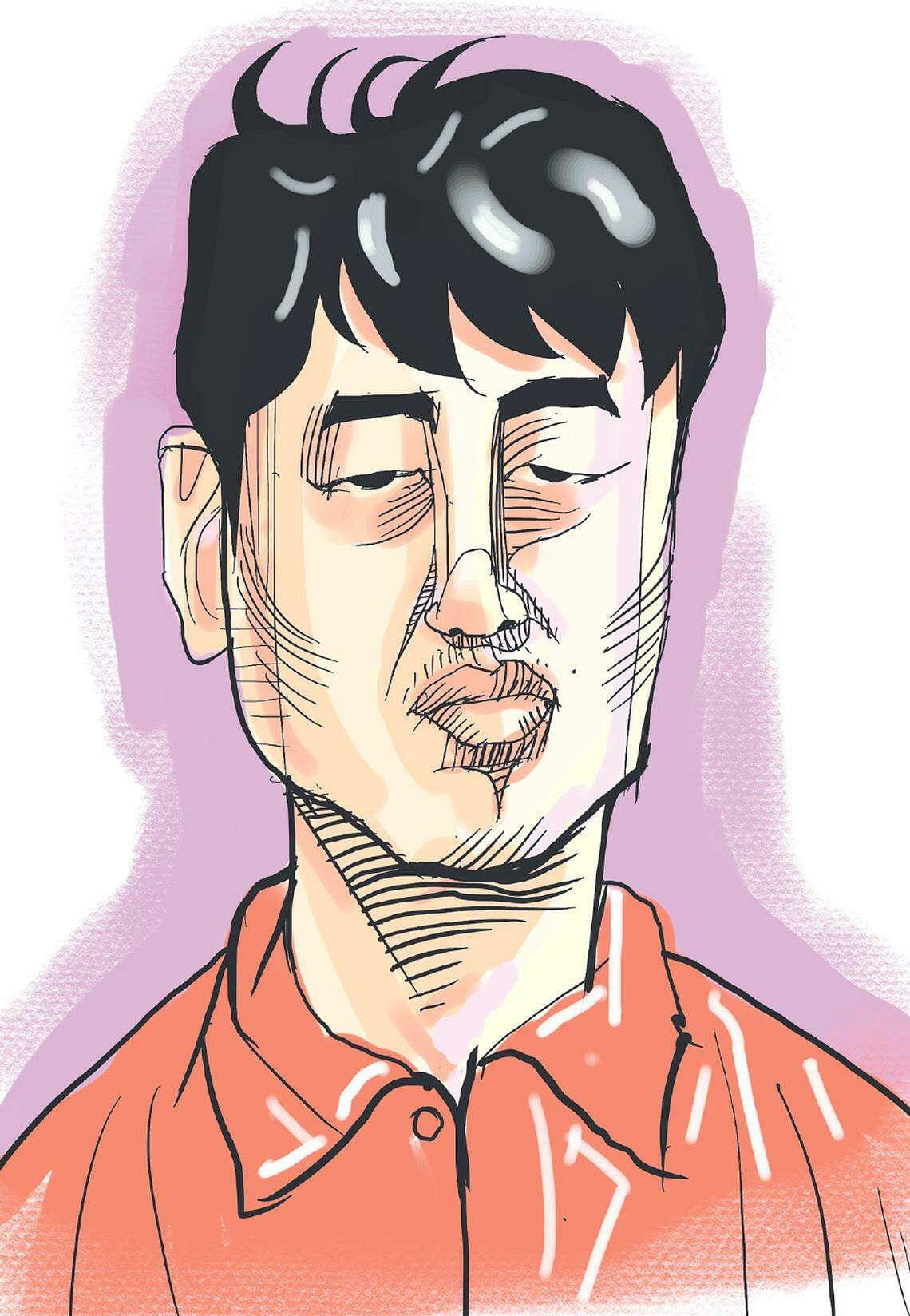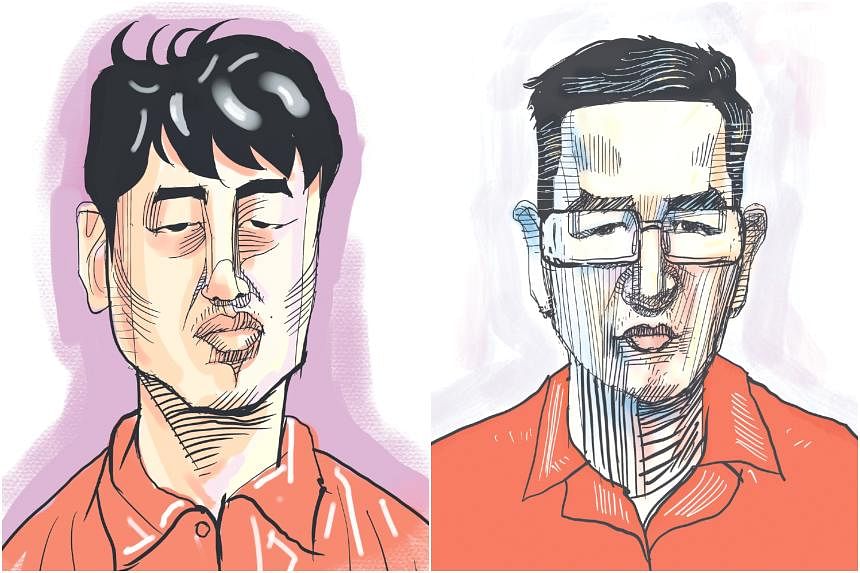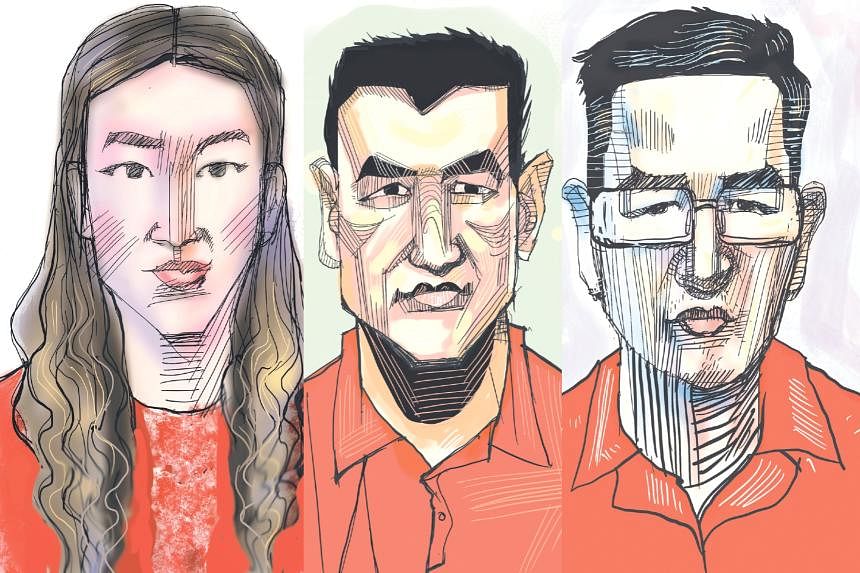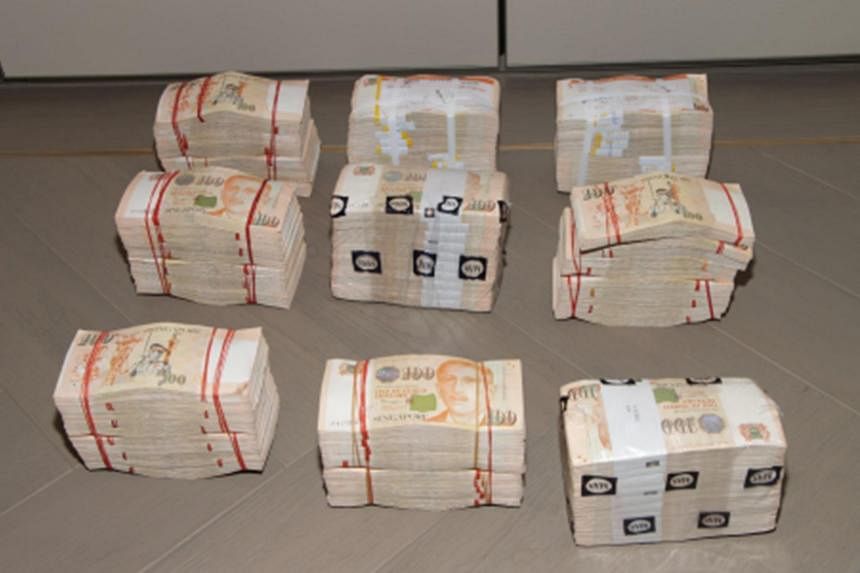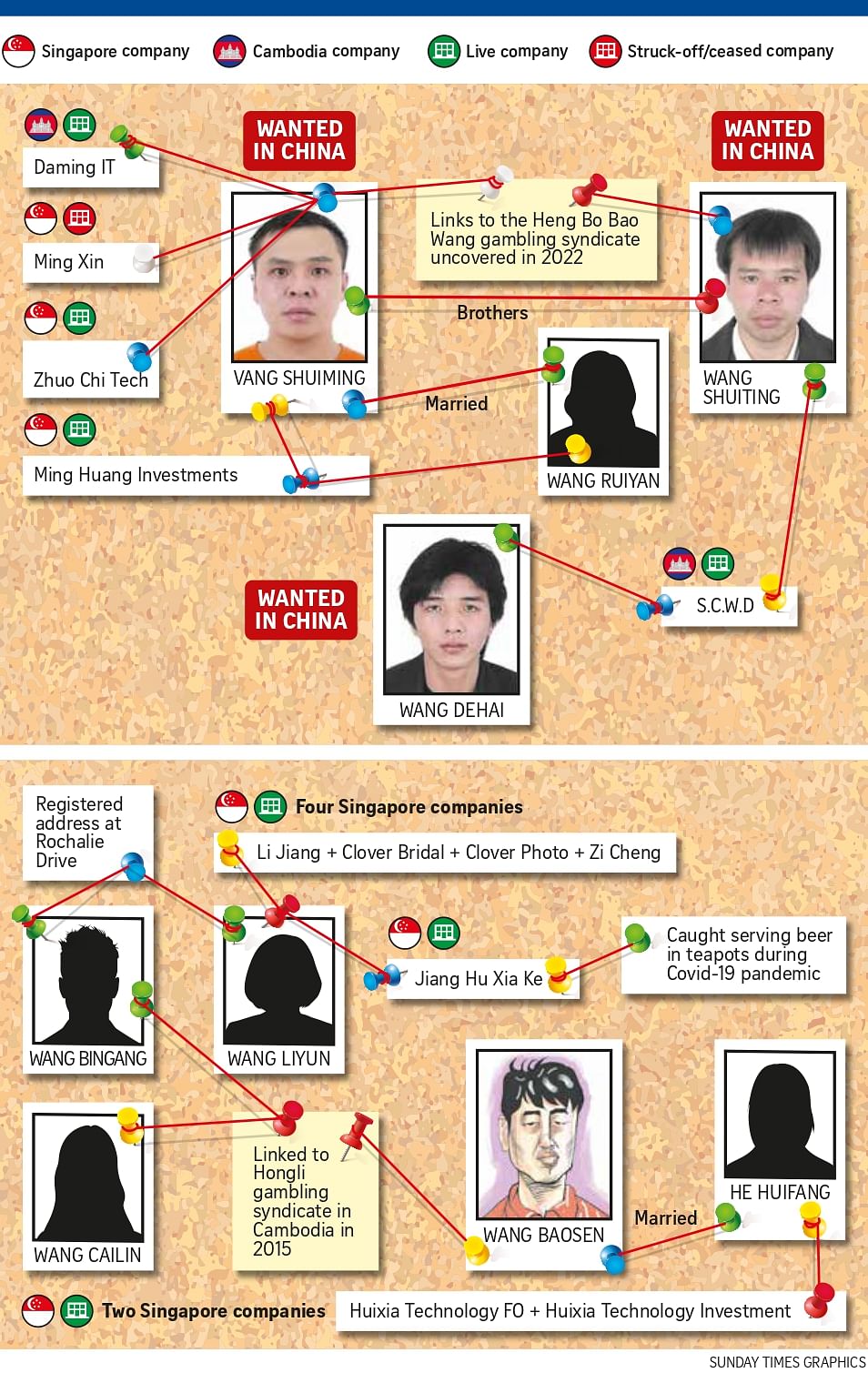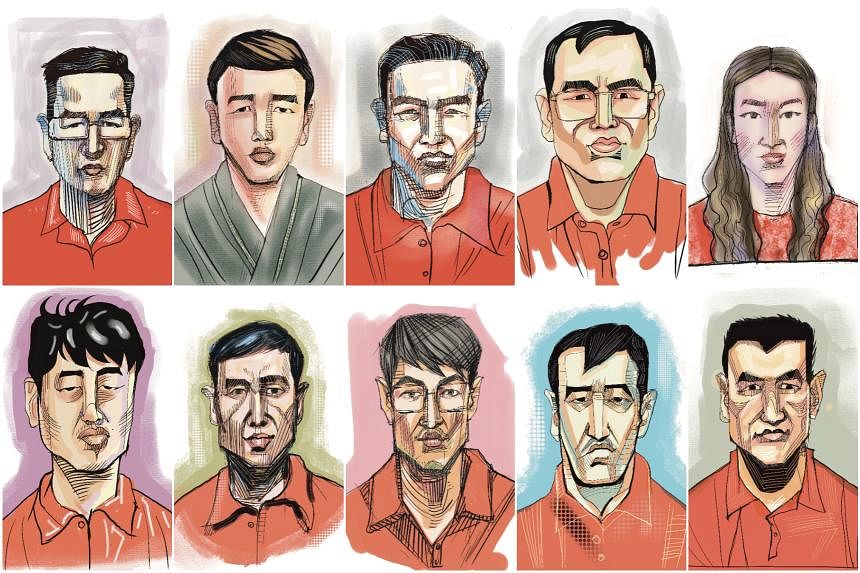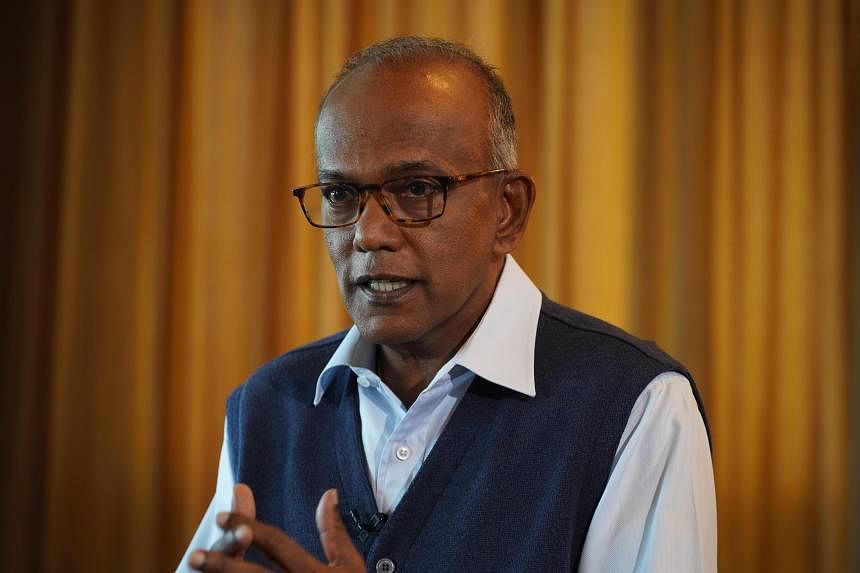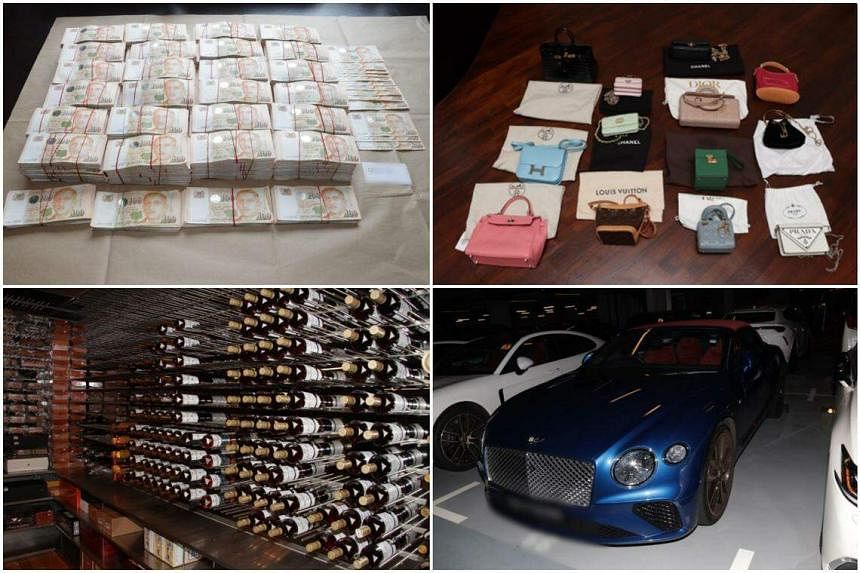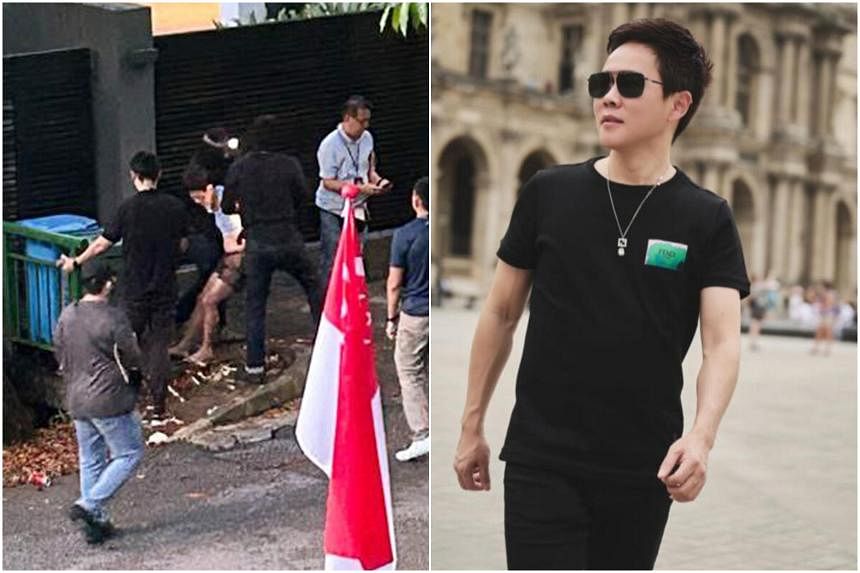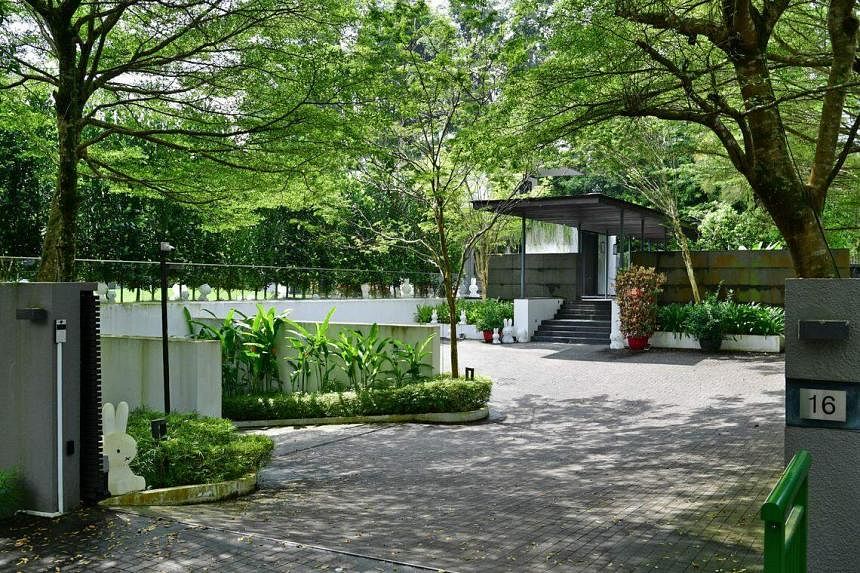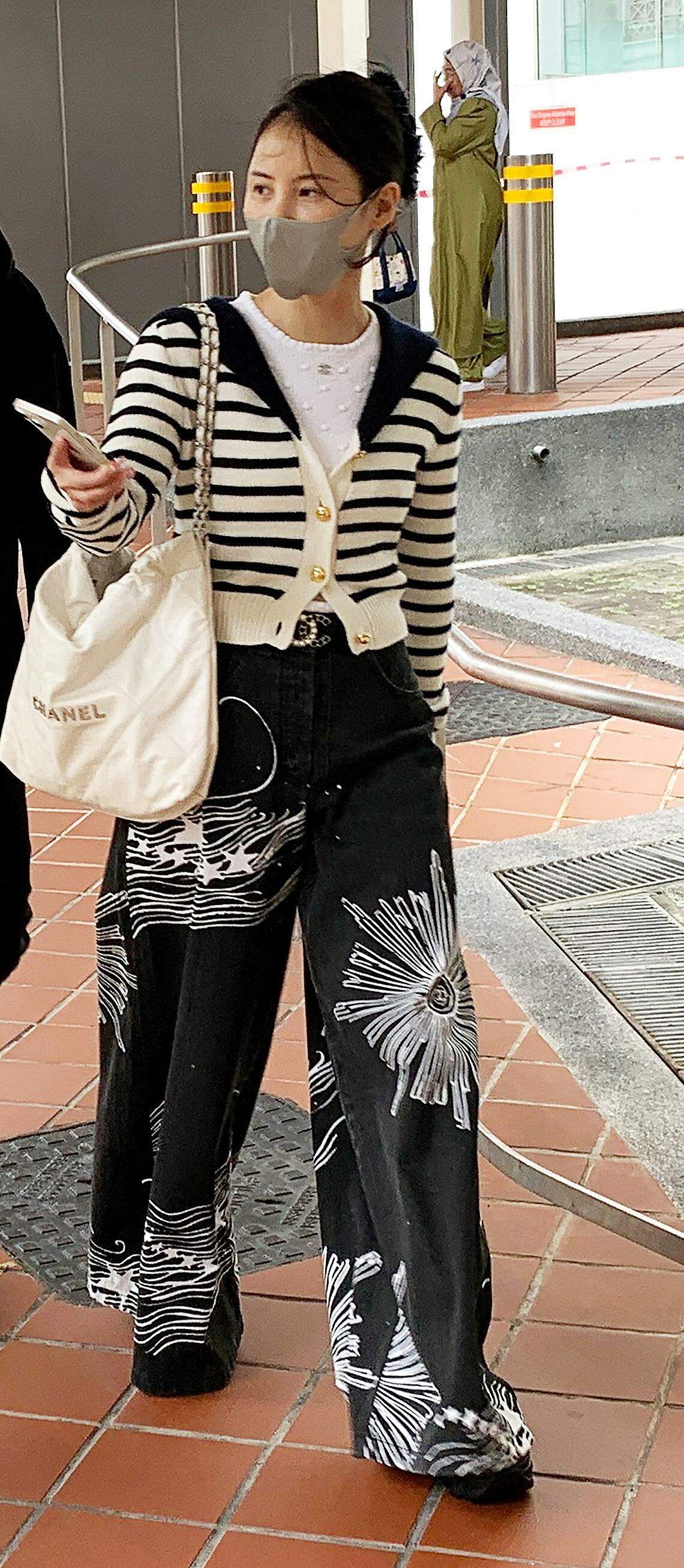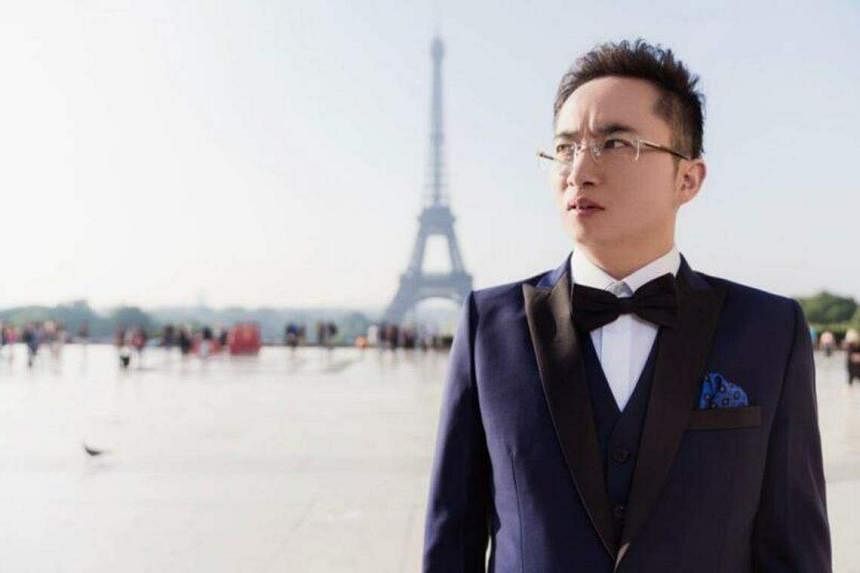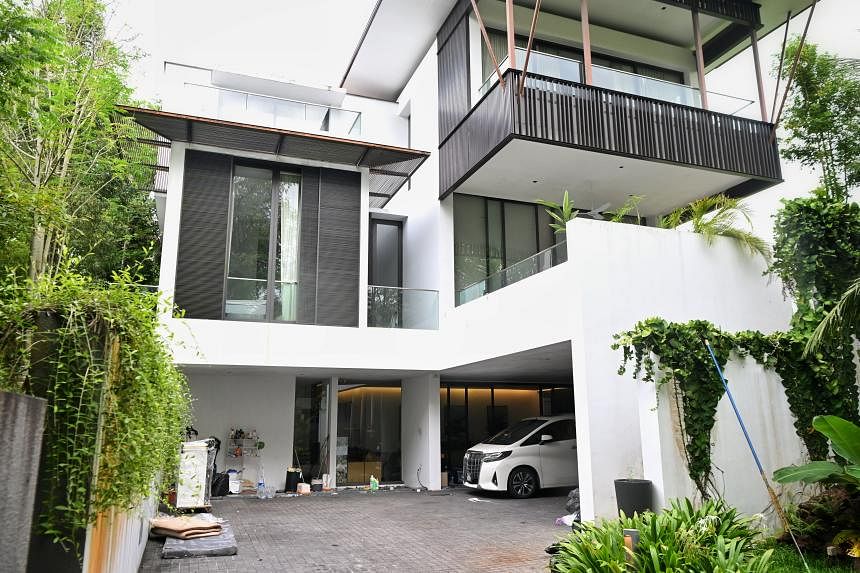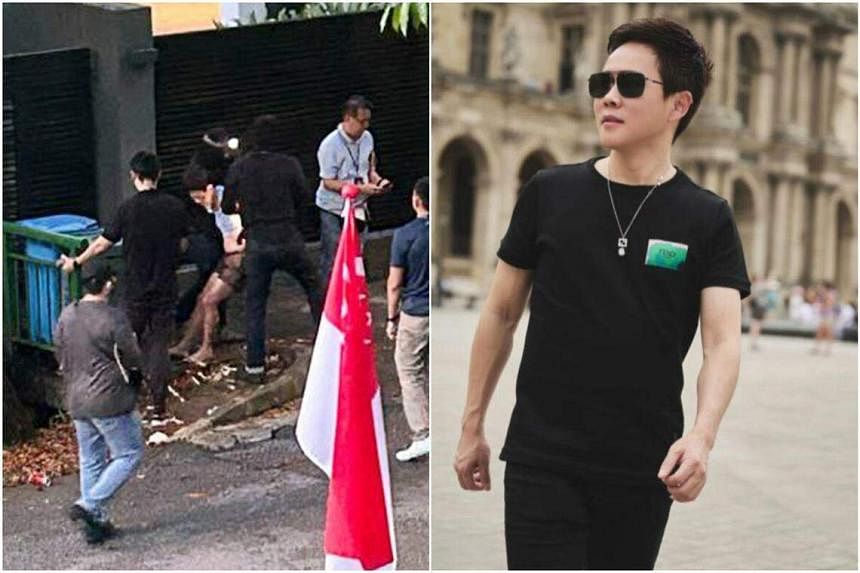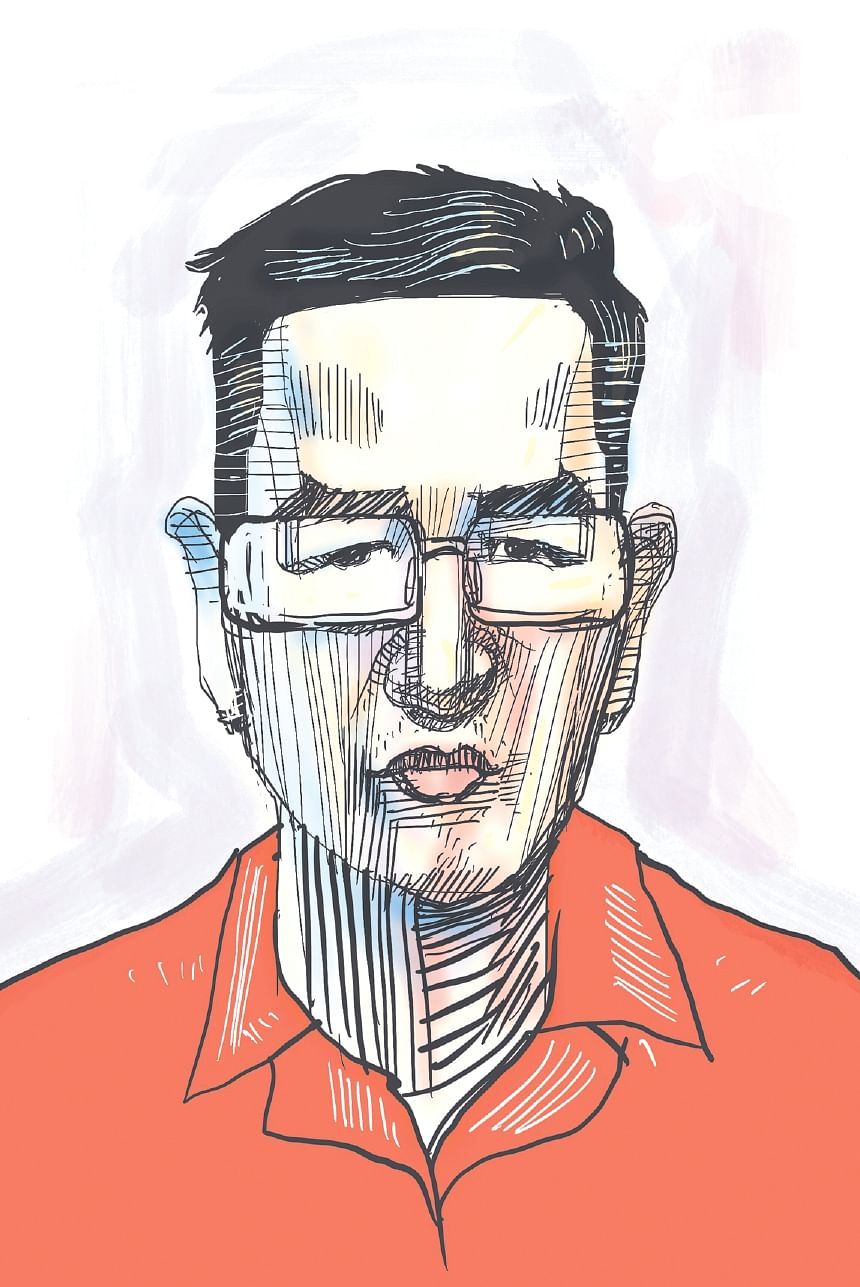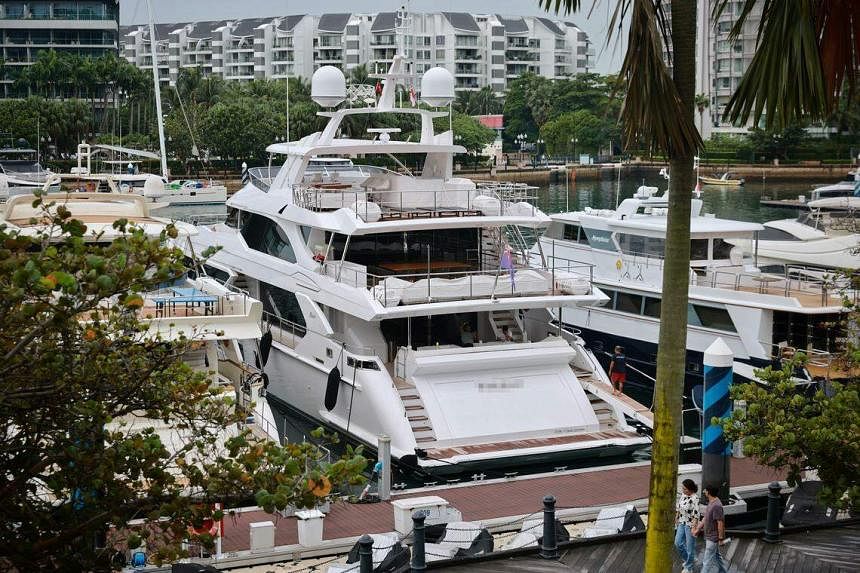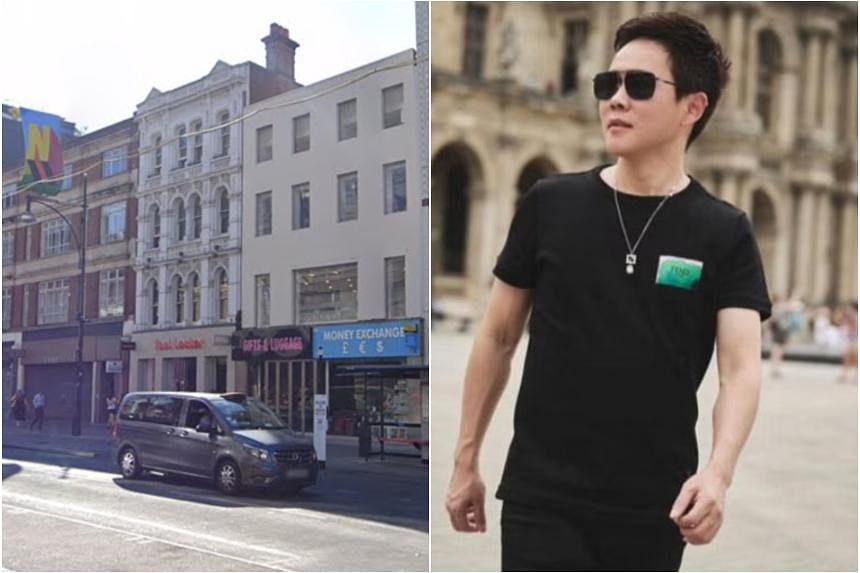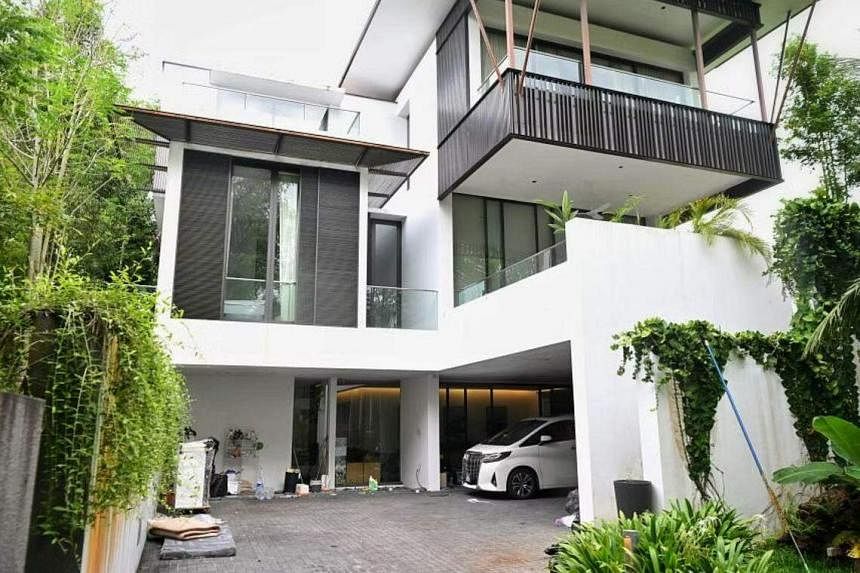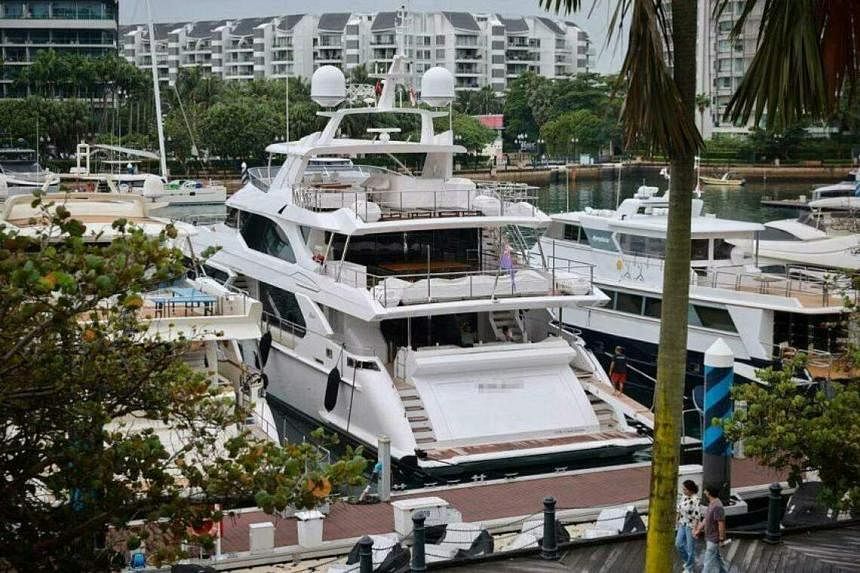Billion-dollar money laundering case: 9 out of 10 accused in S’pore have Cambodian links
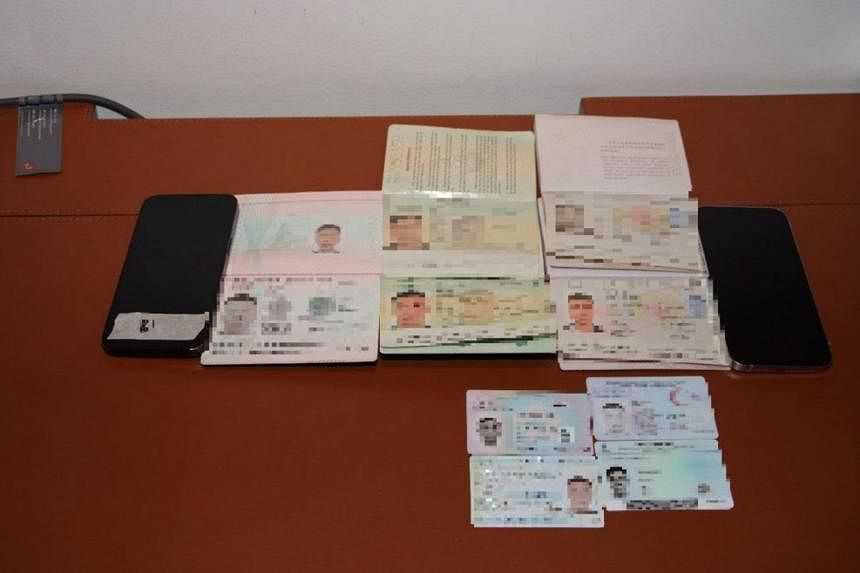
The 10 accused are citizens of seven different jurisdictions, including Cambodia. They are believed to have all originated from China. PHOTO: SINGAPORE POLICE FORCE
David Sun and Nadine Chua
SEP 3, 2023
SINGAPORE – The arrest of 10 foreigners in Singapore in a billion-dollar money laundering blitz has thrown the spotlight on their alleged links to business interests in Singapore and overseas, and the number of jurisdictions where some of them hold citizenship.
Using publicly available data, The Straits Times set about exploring their international and local links.
ST was also provided information by a source affiliated with the United Nations, which last Tuesday highlighted the role played by scam centres in South-east Asia in human trafficking.
The 10 accused in the money laundering case here are citizens of seven different jurisdictions, including Cambodia. They are believed to have all originated from China.
According to a gazette published by the Cambodian government, which lists the identity of new citizens, nine of them were granted Cambodian citizenship between Aug 2018 and March 2021. China does not allow dual citizenship status.
The granting of Cambodian citizenship for the nine was first reported by Cyber Scam Monitor, a website run by an anonymous group from the human rights, humanitarian, academic and media fields.
Separately, a search of the 10 accused persons’ business interests here found one common denominator on Accounting and Corporate Regulatory Authority (Acra) records.
The man, identified by ST only as JJ, is listed as director or shareholder of 185 firms in Singapore.
The web of business and personal networks, and the sheer number of assets involved in the Singapore case, have proven a challenge to untangle.
Last week, the prosecution argued successfully for the accused persons’ continued detention, saying that several are allegedly linked to fugitives from overseas jurisdictions and criminal syndicates based overseas.
This information was obtained, in part, from the accused persons themselves.
The 10 accused individuals who were arrested on Aug 15 will appear in court again on Wednesday.
On Aug 27, the Law Ministry wrote to dealers of precious metals and stones and flagged the names of individuals who could be linked to suspicious transactions.
They identified 34 individuals, including the 10 accused persons.
The accused
Zhang Ruijin, 44, and Lin Baoying, 43
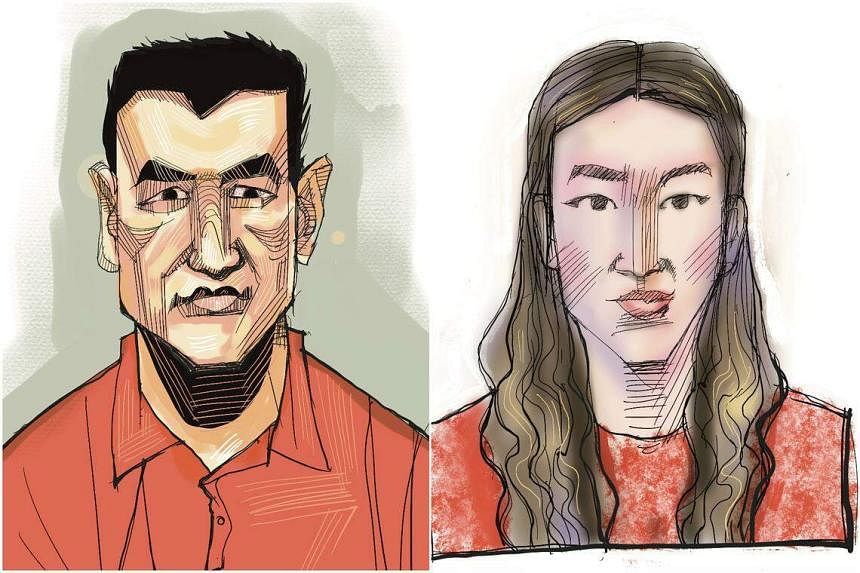
Zhang Ruijin (left) and Lin Baoying purportedly set up Jinying Invest together in Britain in 2019. ST ILLUSTRATIONS: CEL GULAPA
Charge: Zhang has three forgery charges. Lin is facing two forgery charges and a charge of perverting the course of justice.
Cambodian citizenship: Chinese national Lin was granted Cambodian citizenship on March 18, 2021. There are no records to show that Zhang, who is from China, has Cambodian citizenship or links to firms in the country.
Business links: The lovers Zhang and Lin Baoying do not appear to have any links via businesses registered in Singapore. However, the duo had purportedly set up Jinying Invest together in Britain in 2019.
Jinying appointed as the company secretary British-registered firm, Yunma Tianlong International Consulting, which is linked to more than 9,000 companies worldwide.
In 2020, the New Zealand Financial Markets Authority linked the firm to scam networks and recommended caution when dealing with it.
The company is still active, but checks showed that its accounts are overdue and there is an active proposal to strike off the company from the business registry. Separately, Jinying was dissolved in January 2021.
Su Baolin, 41, and Su Haijin, 40
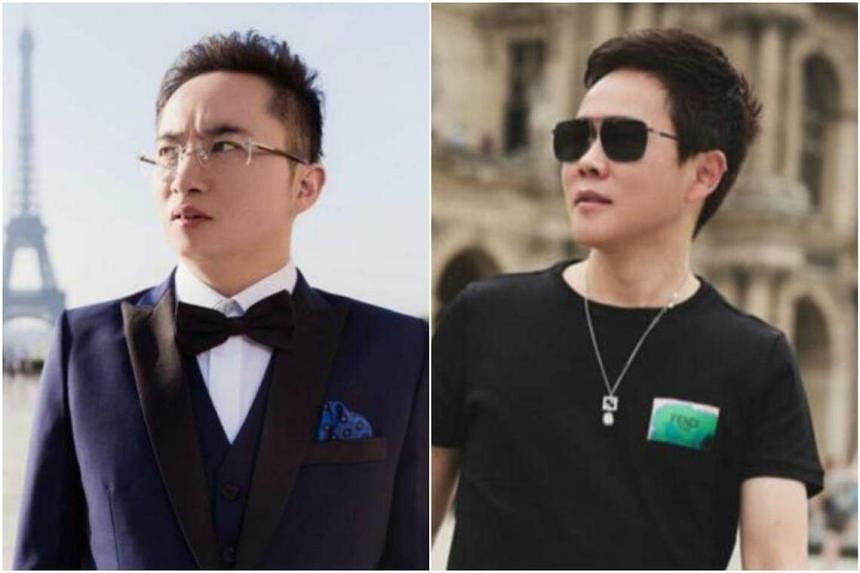
Su Baolin (left) is closely linked to Su Haijin via two Singapore companies.
Charge: Su Baolin is facing two forgery charges here. Su Haijin is facing one charge of evading arrest.
Cambodian citizenship: Su Baolin was granted citizenship on Feb 26, 2019. Cypriot national Su Haijin was granted Cambodian citizenship on Dec 17, 2018.
Business links: Yunma is linked to Su Baolin.
Checks by ST showed that he was the director of the now defunct General Equipment UK, which was registered in Britain in June 2016 and dissolved 17 months later. The firm had listed Yunma as the company secretary.
Su Baolin is closely linked to Su Haijin via two Singapore companies. A search of Acra records last week showed Su Baolin was listed as a shareholder of Meining (Asia) International Electronic Commerce and a director of SG-Gree.
Su Haijin was listed as a shareholder of both Meining and SG-Gree. He is also the chairman of Cambodian company Su Zigen Chengmei, where Cambodian national Su Zigen is listed as director.
Acra records showed that Su Zigen is a shareholder of SG-Gree. Su Baolin was also listed as director of general contractor company Sentosa Project for one day on June 1, 2023.
Vang Shuiming, aka Wang Shuiming, 42
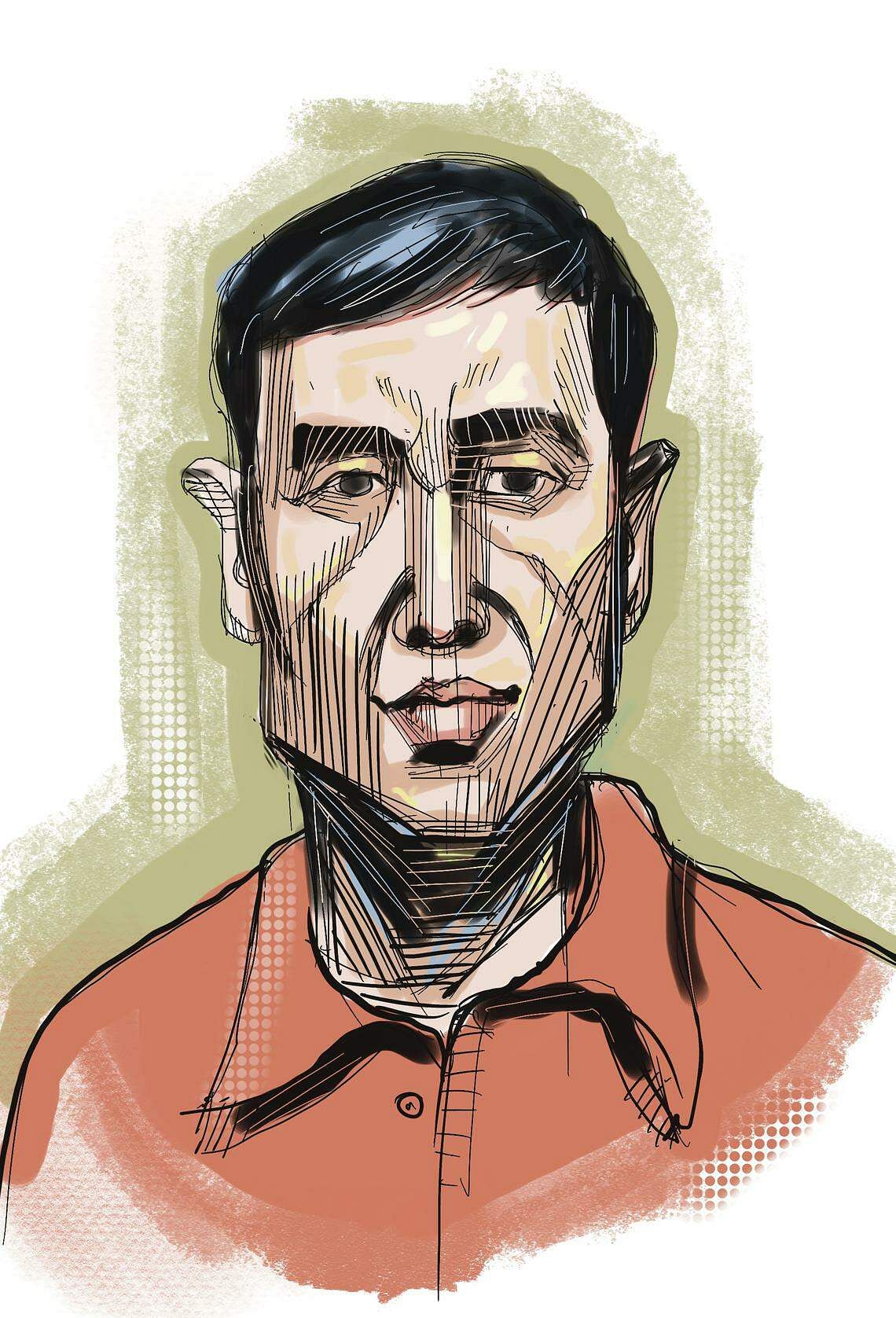
Turkish national Vang Shuiming was granted Cambodian citizenship on March 2, 2019. ST ILLUSTRATION: CEL GULAPA
Charge: The Turkish national is facing a forgery charge here as well as four money laundering charges under the Corruption, Drug Trafficking and Other Serious Crimes (Confiscation of Benefits) Act.
Cambodian citizenship: Vang was granted Cambodian citizenship on March 2, 2019.
Business links: Vang Shuiming, also known as Wang Shuiming, is listed as director and shareholder of Zhuo Chi Technology, a firm in Singapore which purportedly deals in software development. He is also the chairman of Cambodian company Daming IT Services.
According to a notice put up by the Chinese authorities in 2023, he is wanted in China to assist in investigations into the Heng Bo Bao Wang gambling syndicate that was uncovered in 2022.
The Chinese authorities are also looking for a Wang Shuiting, who is linked to the same syndicate as well.
Wang Shuiting is one of eight directors of S.C.W.D. Construction, which was registered in Cambodia in 2016. The letters correspond with the surnames of the directors: Su, Chen, Wang and Deng.
Wang Dehai, 34; Su Wenqiang, 31; and Su Jianfeng, 35
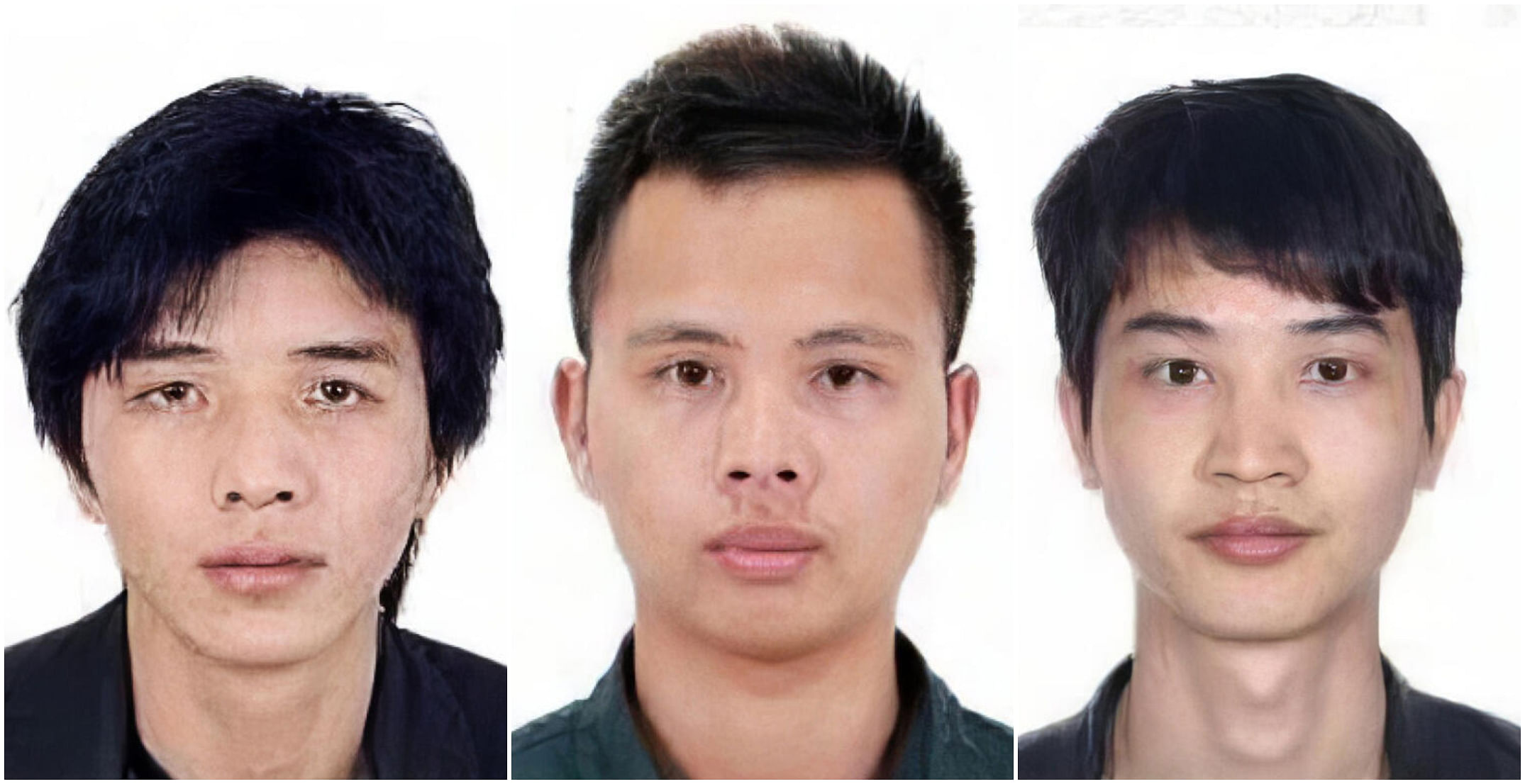
A notice put up by the Chinese authorities links (from left) Wang Dehai to Su Wenqiang and Su Jianfeng. PHOTOS: CHINA POLICE
Charge: Wang Dehai and Su Wenqiang have two money laundering charges each. Vanuatu national Su Jianfeng has four charges for the same offence.
Cambodian citizenship: Cypriot national Wang Dehai was granted Cambodian citizenship on Aug 14, 2018; Su Wenqiang became a Cambodian national on Oct 7, 2019; and Su Jianfeng became a Cambodian national on April 26, 2019.
Business links: Wang Dehai is one of the eight directors of S.C.W.D. According to a notice put up by the Chinese authorities in 2018, he is wanted in China.
The notice links him to Cypriot national Su Wenqiang and Su Jianfeng. The authorities in China have put the three men, alongside a Su Yongcan and Wang Huoqiang, on the wanted list to assist in investigations into an illegal gambling gang that was uncovered in 2017.
Su Jianfeng is director of Cambodian company Great Rise Personnel Consultant. Su Yongcan and Wang Dehai are both separately, but directly, linked to a Chen Zhidong through Cambodian companies.
Su Yongcan is the chairman of Cambodian company Centennial Inception Investment, which lists Chen Zhidong as a director.
Cambodian national Chen Zhidong is also a director of S.C.W.D. But he has links to criminal activities as well, via a Cambodian company Heng He (Cambodia) Commercial Bank.
The firm was set up by one Chen Fuzhou, who was a Chinese national who took on the name Chen Al Len after being granted Cambodian citizenship in 2018. Under the name Chen Al Len, he set up Heng He in 2019, appointing himself chairman.
The company is linked to the Heng He Group, which was reportedly tied to scams, illegal gambling and human trafficking.
S’pore’s billion-dollar money laundering case: The criminal link to Fujian’s tea county in China
Suspects in billion-dollar money laundering case in S’pore allegedly linked to China gambling groups
A special report by Al Jazeera in 2022 uncovered Heng He Group’s links to scam compounds in Cambodia. The Sydney Morning Herald reported Heng He Group’s links to human trafficking and illegal gambling operations in Cambodia as well.
Chen Al Len is chairman of Cambodian company P 7 International Trading, which he registered in 2016 under the name Chen Fuzhou.
The board of directors at P 7 International Trading include one Xu Haika, a Chinese national who changed his name to Xu Haita when he became a Cambodian citizen in 2018.
Checks by ST found that Xu Haika used three different people profiles to register his business links to three companies in Singapore. The profiles all listed Xu Haika’s nationality as a citizen of Vanuatu.
The three profiles were registered to different addresses: one in Fujian, China, one at a condominium in Beach Road and the third at an apartment in Tomlinson Road.
The records show that Xu is currently director and shareholder of three companies here.
He is believed to have purchased a shophouse in South Bridge Road in 2021 for $27 million.
Also linked to the Heng He Group is one Wang Mingbin, a Cambodian citizen who is director of Heng He (Cambodia) Commercial Bank. Wang Mingbin is listed as chairman of Cambodian company Miracle Investment.
His address, according to the business records, is a unit in the Chamkar Mon district of Phnom Penh, Cambodia.
Chen Qingyuan, 33
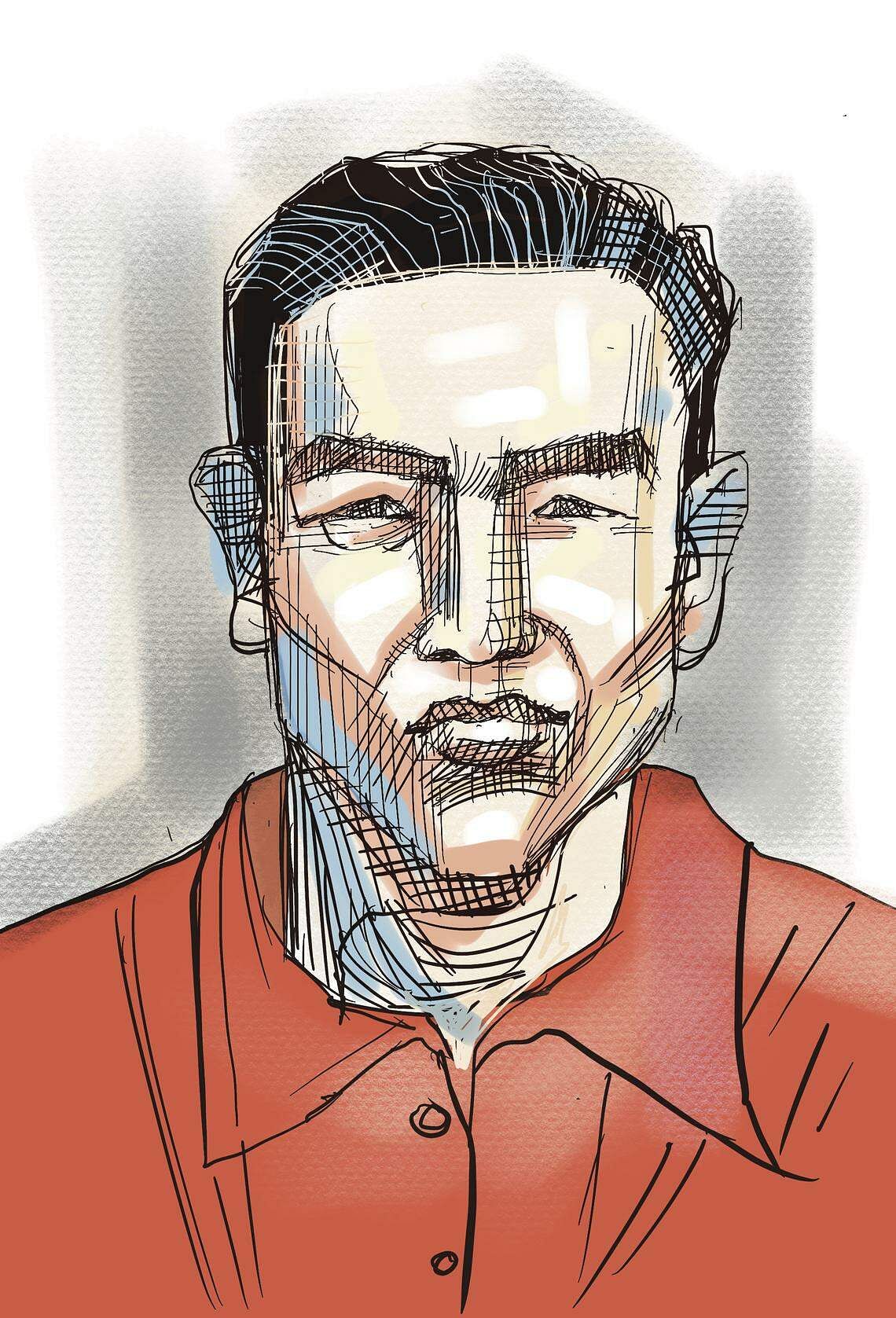
Chen Qingyuan obtained his Cambodian citizenship on Aug 14, 2018. ST ILLUSTRATION: CEL GULAPA
Charge: Chen Qingyuan is facing four money laundering charges in Singapore.
Cambodian citizenship: He obtained his Cambodian citizenship on Aug 14, 2018.
Business links: Wang Mingbin’s address in Cambodia has also been traced to Chen Qingyuan, who is listed as the chairman of Cambodian company Haocai Investment.
He is also linked to at least two Cambodian companies and five companies in Singapore.
According to a notice issued by the Chinese authorities in 2019, Chen Qingyuan is wanted in China to assist in a case of fraud.
Wang Baosen, 31
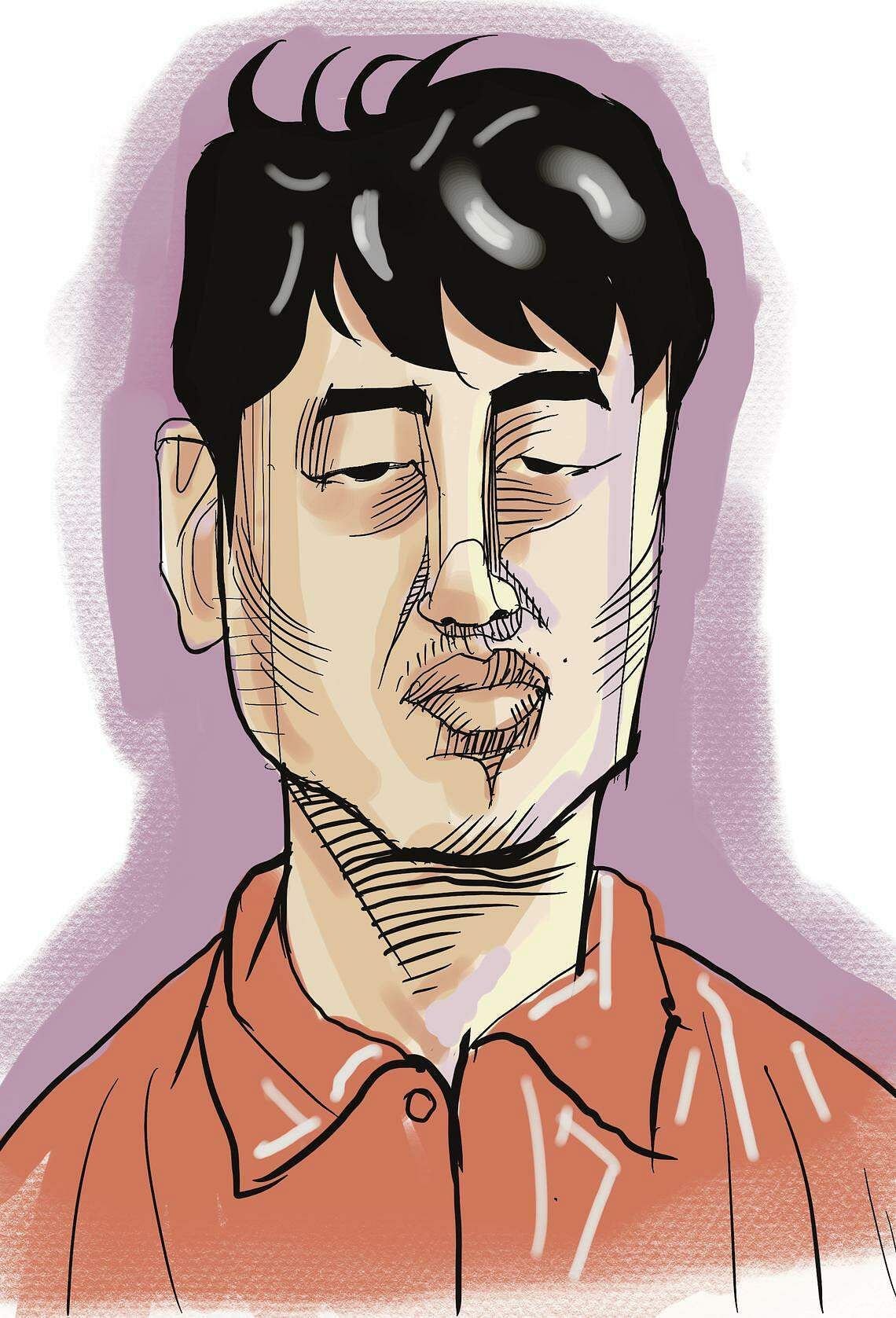
Wang Baosen was granted Cambodian citizenship on April 6, 2020. ST ILLUSTRATION: CEL GULAPA
Charge: The Chinese national has two money laundering charges in Singapore.
Cambodian citizenship: He was granted Cambodian citizenship on April 6, 2020.
Business links: There appear to be no records of business links between Wang Baosen and the nine other accused persons.
However, in court last week, the prosecution said the Chinese national is linked to a fugitive and a gang based overseas.
A report by China news outlet Shi Chang Xing Bao in 2015 had linked him to people involved with the Hongli gambling syndicate, which previously operated in Cambodia.

The associates
- Su Yongcan
- Wang Huoqiang
- Wang Bingang
- Chen Mulin
- Liu Jiarong
- Wang Shuiting
- Chen Peiyong
- Chen Zhiqiang
- Wu Qin
- Wang Ruiyan
- Ma Ning
- Chen Qiuyan
- Qnag Qiujiao
- Su Caihuang
- He Huifang
- Su Yanping
- Chen Lingling
- Chen Qingqing
- Wang Liyun
- Su Lihong
- Su Jianhua
- Wu Shuiying
- Wu Bihua
- Chen Qiuxiang

